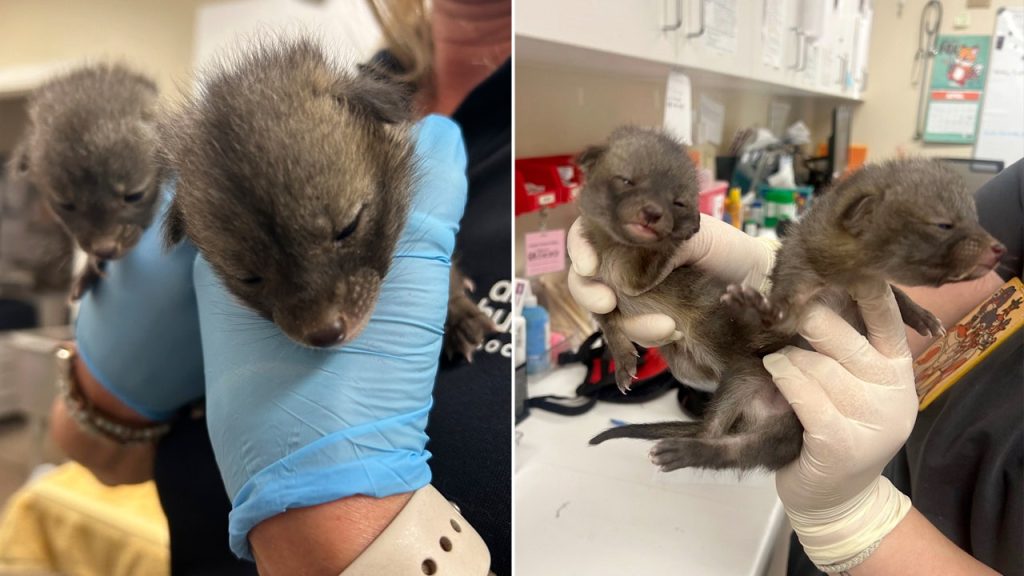The Arizona Humane Society recently warned people to be cautious when rescuing baby animals, making sure they are actually orphans before intervening. A Good Samaritan brought a den full of baby animals to the Arizona Humane Society, thinking they were domestic animals in need of help. However, it was soon discovered that they were baby foxes. The foxes were transferred to the Southwest Wildlife Conservation Center for rehabilitation and will be released into the wild once they are old enough to fend for themselves. This incident highlights the importance of allowing animal mothers to care for their young, especially during “kitten season” when well-meaning individuals may try to rescue litters of kittens unnecessarily.
Jennifer Armbruster, Senior Manager of Public Relations at the Arizona Humane Society, emphasized that human intervention is typically not required when it comes to baby animals. It is best to leave kittens alone as the mother cat will likely return to care for them. It is critical for the kittens’ survival that they remain with their mother. If after eight hours the mother has not returned, then it may be appropriate to intervene. The Arizona Humane Society and other animal organizations offer Care-In-Place kits for underaged, orphaned kittens to be cared for until they are old enough to be spayed or neutered. If a person encounters a litter of wild animals with no mother in sight, it is recommended to contact a wildlife rehabilitation organization for assistance.
Gray foxes are commonly found throughout the United States and typically grow to be about four to five pounds and a foot tall at the shoulder. Female foxes typically have litter sizes ranging from three to seven kits. If one were to come across a litter of wild animals with no mother present, contacting a wildlife rehabilitation organization is the best course of action. It is important to verify the species of the animal before attempting to rescue them to ensure they are properly cared for and released back into the wild. The Arizona Humane Society also provides information and resources on how to properly handle situations involving orphaned baby animals.
It is recommended to keep a close eye on baby animals and wait to see if the mother returns before taking any action. The best chance for survival for young animals like these is to be cared for by their mother. Human intervention should only occur if the mother is truly incapable of caring for her young. By allowing wildlife to care for their young naturally, the chances of survival and successful release back into the wild are significantly increased. Educating the public on when and how to properly intervene with baby animals is crucial for their well-being and survival.
The Arizona Humane Society’s warning serves as a reminder to be cautious and considerate when encountering baby animals in need of help. By understanding the natural behavior of wild animals and allowing their mothers to care for them whenever possible, we can help ensure their successful rehabilitation and return to the wild. It is important to reach out to wildlife rehabilitation organizations for assistance in cases where orphaned or injured animals need professional care and rehabilitation. By working together to protect and preserve wildlife, we can help support a healthy and balanced ecosystem for future generations.


